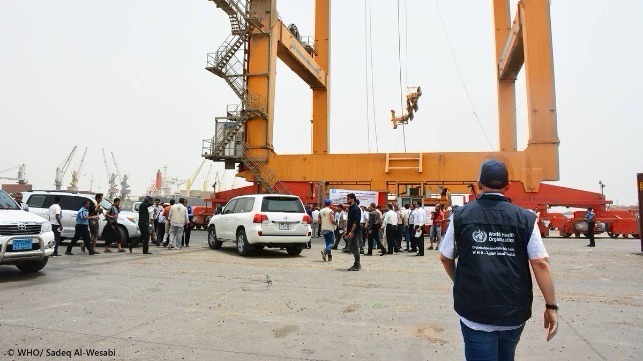UN: Renewed Blockade Could Lead to Famine in Yemen

On Tuesday, Yemeni Prime Minister Ahmed Obeid bin Daghir pleaded with Saudi Arabia and its allies to save his nation's currency and stave off famine. The rial has lost half its value relative to the dollar over the past year as the Yemeni government has printed currency to cover its costs. "Saving the rial means saving Yemenis from inevitable hunger," bin Daghir wrote in a social media post, and he appealed to Riyadh to honor a pledge of financial assistance.
Saudi Arabia leads a coalition of Arab nations on the government side of the Yemeni civil war. It has restricted seaborne shipments of humanitarian aid, according the U.N. and aid NGOs, allegedly contributing to widespread food shortages. In late December, the coalition agreed to allow the key Red Sea port of Hodeidah to reopen for aid cargoes for a thirty-day period, and at least 13 vessels have arrived and offloaded since. Saudi forces have also allowed four new U.S.-funded cranes to be delivered and installed at the port, replacing equipment that Saudi aircraft damaged or destroyed in a 2015 bombing raid. Two of the cranes are dedicated to aid shipments and two to commercial port operations, according to WFP spokesperson Bettina Luescher.
However, even though the cranes have arrived, the temporary 30-day window of port activity could close again on Friday. Stephen Anderson of the U.N. World Food Programme warned Tuesday that shutting Hodeidah down again may lead to "catastrophic loss of life." According to Anderson, fully 11 million Yemenis are in acute need of aid, and some 400,000 children are severely malnourished. The U.N. describes it as the world's worst current hunger crisis.
“The instability caused by the coalition’s arbitrary policies, closing ports one day and reopening them on another, is making problems worse for the Yemeni population,” said Mutasim Hamdan of the Norwegian Refugee Council, speaking to Reuters. “Shipping companies, importers and vendors are left without assurance that the port will remain open, and this is serving to sustain inflation that makes food unaffordable."
